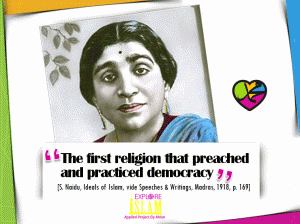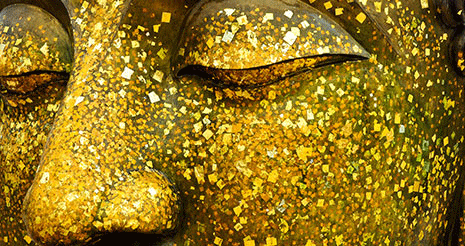The weak and failures should perish!
“The weak and failures should perish: first principle of our love of humanity. And they should be helped to do this!” Friedrich Nietzsche, a German philosopher.
For centuries, this was one of the western ideologies. On the other hand, the philosophy of Islam and its law took another turn that has never deviated from values and ethics. It was clearly represented in a set of rights that included all human beings without distinction between colors, races or languages, and also included the human behavior in dealing with each other. These values and ethics were also represented in maintaining and applying these rights with the authority of Islamic law and imposing sanctions upon offenders.
How does Islam value humans?
Islam treats human beings with honor and esteem out of God’s saying:
 And We have certainly honored the sons of Adam and carried them on the land and sea and provided for them of the good things and preferred them over much of what We have created, with [definite] preference.” [Quran 17: 70].
And We have certainly honored the sons of Adam and carried them on the land and sea and provided for them of the good things and preferred them over much of what We have created, with [definite] preference.” [Quran 17: 70].
This Qur’anic verse shed the light on the main reason behind the special characteristics and features of rights given to humans (human rights) in Islam. The most important feature is the comprehensiveness of these rights. There are political, economic, social and intellectual rights among other. They are also common for Muslims and non-Muslims without distinction or discrimination and they are not subject to cancellation or change, as they are linked to the teachings of the Lord of the worlds.
The Farewell Sermon (Khutbatul-Wadaa); First ever Human Rights Declaration
Prophet Muhammad delivered his last sermon (known as Khutbatu-hajjatul-Wadaa) on the ninth of DhulHijjah in 10th year after Hijrah (migration from Makkah to Medina). The sermon was delivered in the valley of Mount Arafat.
It was the best example of eloquence, brevity and conciseness. The content of the message was humane, rational and favorable to justice and equality. Although this message was delivered more than fourteen centuries ago, it was still inclusive of all bases of equality and justice and is an essence of the true message and philosophy of Islamic faith.
Was equality really included?
Of course! it was the first right mentioned in that sermon. Here, we are shedding the light on that part that addressed the importance of social equality in Islam:
 O’ people We created you from one male and one female and made you into tribes and nations, so as to be known to one another. Verily in the sight of Allah, the most honored amongst you is the one who is most God-fearing.” [Quran 49:13]
O’ people We created you from one male and one female and made you into tribes and nations, so as to be known to one another. Verily in the sight of Allah, the most honored amongst you is the one who is most God-fearing.” [Quran 49:13]
The Prophet PBUH also said:
 There is no superiority for an Arab over a non-Arab and for a non-Arab over an Arab or for the white over the black or for the black over the white except in God-consciousness.” [Narrated by Imam Ahmed]
There is no superiority for an Arab over a non-Arab and for a non-Arab over an Arab or for the white over the black or for the black over the white except in God-consciousness.” [Narrated by Imam Ahmed]
And from here came the call for freedom and finishing off slavery.
What is the shortest description of a safe life?
The Prophet PBUH addressed the people on the Day of Sacrifice and the issue he emphasized most was the sanctity and inviolability of blood, property and honor of all Muslims.
Describing the importance of private property rights, Prophet Muhammad (PBUH) said:
 O’ people! Verily your blood, your property and your honor are as sacred and inviolable as the sacred inviolability of this day of yours, this month of yours and this very town (of yours). Verily, you will soon meet your Lord and you will be held answerable for your actions.” And he said: “All of a Muslim is inviolable to another Muslim: his blood, property, and honor.”
O’ people! Verily your blood, your property and your honor are as sacred and inviolable as the sacred inviolability of this day of yours, this month of yours and this very town (of yours). Verily, you will soon meet your Lord and you will be held answerable for your actions.” And he said: “All of a Muslim is inviolable to another Muslim: his blood, property, and honor.”
The Prophet (PBUH) gave another stern warning pertaining to the sanctity of blood by saying,
 Do not return to disbelief after me, striking the necks of each other.”
Do not return to disbelief after me, striking the necks of each other.”
So it was described as an act of disbelief and Islam came warning against it and prohibiting it in order to achieve harmony, unite hearts, and protect blood from being spilled in vain without any right or reason.
To this effect, the Prophet (PBUH) said,
 Insulting a Muslim is an evil action, and fighting him is an act of disbelief”
Insulting a Muslim is an evil action, and fighting him is an act of disbelief”
All Muslims must beware of perpetrating such a blatant and disastrous sin: transgressing upon the blood, property, or honor of another Muslim.
There was a man who wrote to Ibn ‘Umar (may Allah be pleased with him): “Compile all knowledge for me.”
So he wrote back:
 Verily, knowledge is much. However, if you are able to meet Allah not bearing the burden of having transgressed on the blood of the people; with a stomach not having consumed wealth misappropriated from them; having withheld your tongue from their honor; and while striving to adhere to their general body; then do so.”
Verily, knowledge is much. However, if you are able to meet Allah not bearing the burden of having transgressed on the blood of the people; with a stomach not having consumed wealth misappropriated from them; having withheld your tongue from their honor; and while striving to adhere to their general body; then do so.”
.
 .
.What about Economic & Social Security?
On the same occasion, Prophet Muhammad (PBUH) denounced interest taking and eliminated this evil which is a major cause of social and economic inequality.
Prophet Muhammad (PBUH) said:
 All interest and usurious dues accruing from the times of ignorance stand wiped out. And the first amount of interest that I remit is that which Abbas ibn Abd-al Muttalib had to receive. Verily, it is remitted entirely.”
All interest and usurious dues accruing from the times of ignorance stand wiped out. And the first amount of interest that I remit is that which Abbas ibn Abd-al Muttalib had to receive. Verily, it is remitted entirely.”
And it was applied recently in so many countries around the world an economic system called “Sukuk” which is similar to a conventional bond, however, as opposed to the conventional bonds, which confer ownership of a debt, sukuk grants the investor a share of an asset, along with the commensurate cash flows and risk. Sukuk securities comply with the Islamic principles, which prohibit the charging or payment of interest.
These were some of the Human Rights taught by our prophet Muhammad, peace be upon him, in his Last Sermon.

